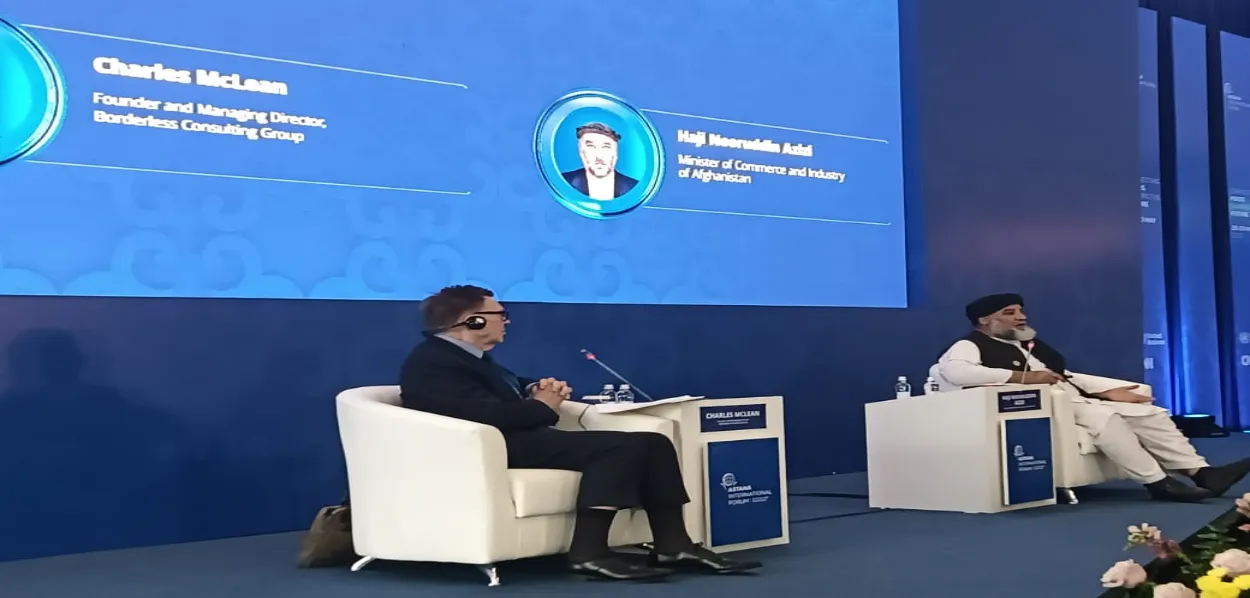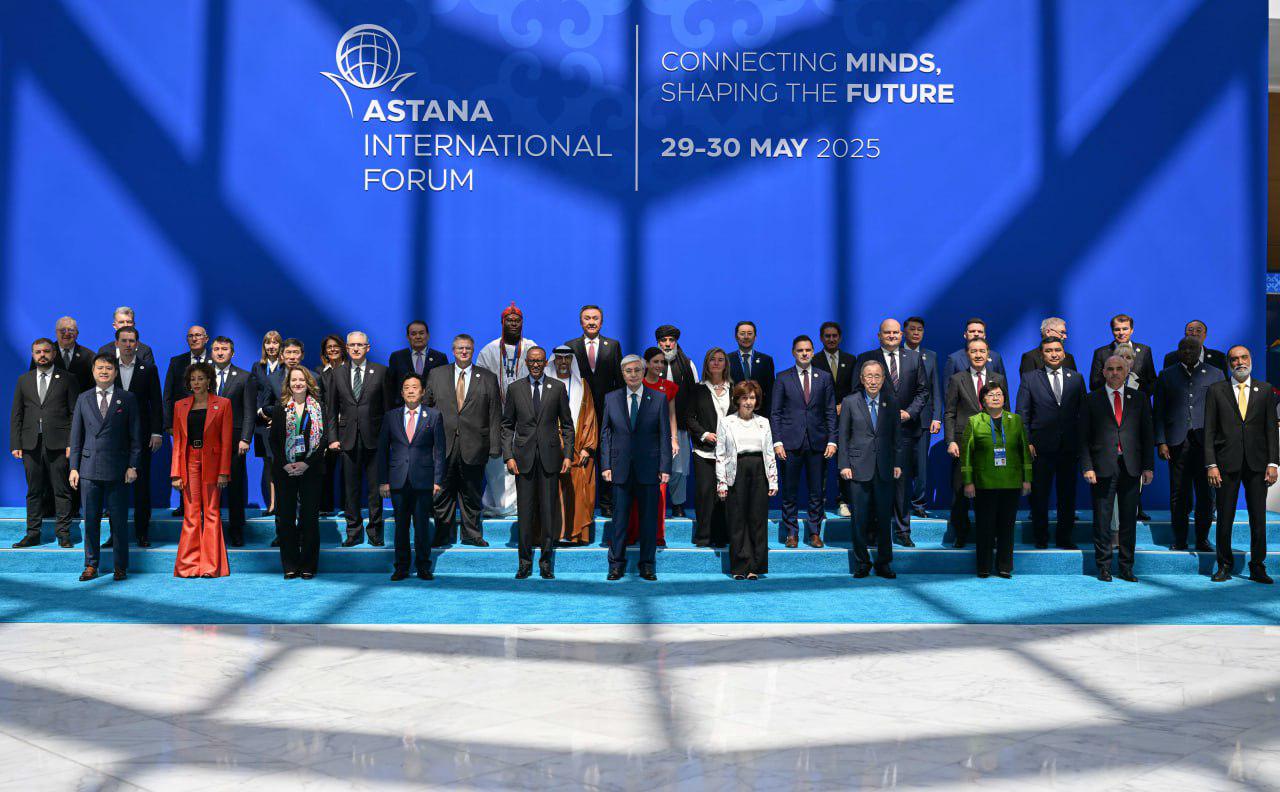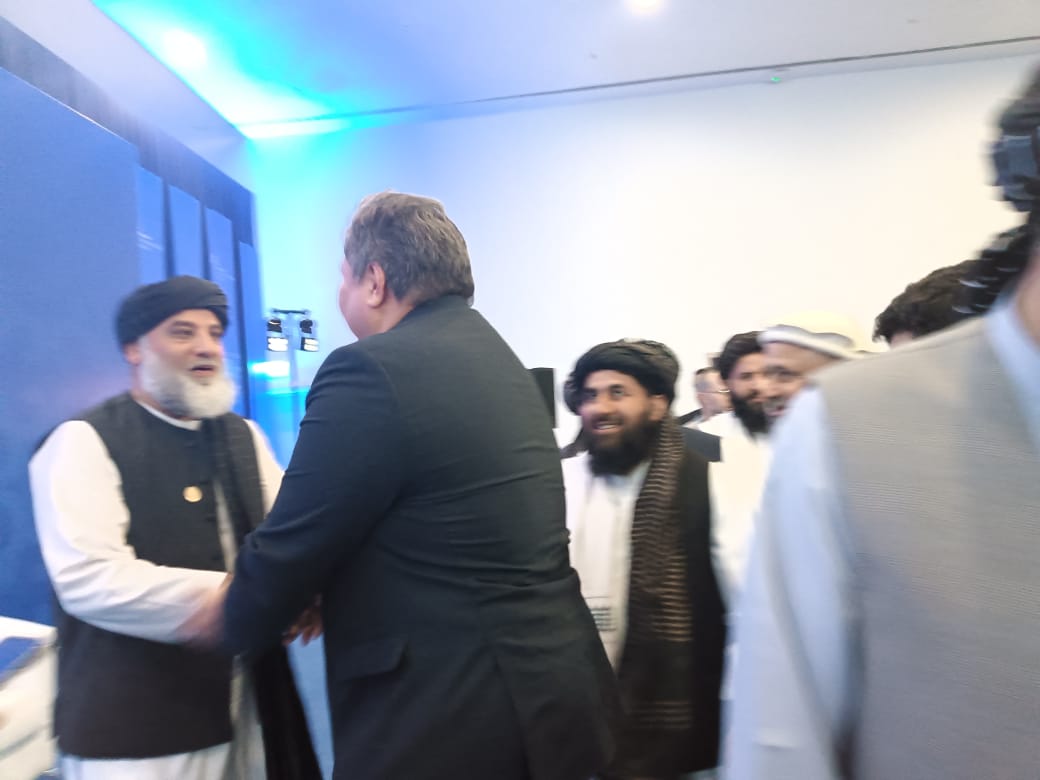
Aditi Bhaduri
At the recently concluded Astana International Forum 2025, in Kazakhstan, I had the chance to meet and hear the Afghan Minister of Trade and Industry. The two-day Forum, which began on May 29 provided a platform to diverse voices from around the globe.
The presence of Haji Nooruddin Azizi, Minister of Trade and Industry of the current Taliban government in Afghanistan was a significant aspect of the Forum. The Minister pitched for investments and businesses in his war-torn country, underscoring that every facet of Afghan life was a priority and needed urgent global support. The Minister, speaking in Persian, explained how his government and, in particular, his ministry, were tackling corruption -- a long-term malady in Afghanistan. Azizi explained that his ministry was easing norms and rules for faster processing of trade and business.
Kazakhstan was one of the first countries to remove the Taliban from its list of terror and proscribed organizations. Eight months ago, Taliban representatives, or as they term it, the Islamic Emirates of Afghanistan, opened their official representation in the Kazakh capital.
India recently established relations with the acting Taliban government of Afghanistan. Foreign Secretary Vikram Misri's meeting with the acting Taliban Foreign Minister, Amir Khan Muttaqi, in January made headlines. India’s gesture of reaching out to the Taliban was seen in the context of growing tensions between Kabul and Islamabad.
On December 24, the Pakistan Air Force carried out strikes on the Tehreek-e-Taliban Pakistan (TTP) in the bordering Afghan province of Paktika. While Pakistan claimed that TTP terrorists had been eliminated, the Afghan Taliban claimed that the strikes had killed 46 civilians, mostly women and children. On December 28, the Taliban claimed to carry out retaliatory strikes against Pakistan.
The meeting focused on India's humanitarian aid to Afghanistan, which India agreed to increase. Talks had also touched upon "development projects in the near future,” and the use of the Chabahar port in Iran for bilateral trade, and humanitarian assistance. The Taliban, in turn, issued a statement saying that it sought to strengthen political and economic relations with India, a key regional and economic player.”

Leaders at the Astana International Forum 2025 Kazakhstan
Misri's meeting followed India’s condemnation of Pakistan’s air strikes on Afghan territory.
Fast forward to the present. India faced the Pahalgam massacre and followed it up with Operation Sindoor. Afghanistan was one of the few countries that outrightly supported India. One only had to browse through social media and comments on news sites to know that Afghans, irrespective of their political inclination, supported India unabashedly.
When Pakistan disseminated the falsehood that India had launched a missile strike on Afghan territory, Taliban officials immediately rejected it.
Soon after the India-Pakistan ceasefire, none other than External Affairs Minister Dr. S. Jaishankar spoke with the acting Afghan foreign minister, Mawlawi Amir Khan Muttaqi, on the phone. This was the first ministerial-level phone call since the Taliban came to power in August 2021.
In a post on X Jaishankar said he had a “good conversation” with Muttaqi on Thursday evening, adding “deeply appreciate his condemnation of the Pahalgam terrorist attack”. He also appreciated Kabul’s rejection of the Pakistani claim that India had launched missile strikes on Afghan territory, adding that India “welcomed his firm rejection of recent attempts to create distrust between India and Afghanistan through false and baseless reports”.
While a growing rift between Pakistan and the Taliban may have catalysed India's outreach to the Taliban, commonsense would have demanded the same.
At the Astana forum, Azizi expressed his gratitude to the Kazakh government for its support. He also held a meeting with Kazakh President Kassym-Jomart Tokayev. Russia, India's strategic partner, Turkiye, China, and Kazakhstan were at the forefront of supporting Afghanistan in trade and investments. So was Iran. This was almost the entire Eurasian region and Afghanistan's neighbourhood. All other regional powers and Afghanistan's immediate neighbours, Uzbekistan and Turkmenistan, had opened channels of communication with the Taliban, coordinating local and border security and trade while the US-backed Ashraf Ghani government was still in charge.

Haji Nooruddin Azizi interacting with others during the meeting
India was the only one left out. However, regional security, trade, and realpolitik demand that India engage with the Taliban. And finally, India has come around to doing that.
Afghanistan is a resource-rich country, situated at the heart of the Eurasian landmass, a natural bridge between Central and South Asia. India has had centuries-long civilizational ties with Afghanistan, irrespective of who was at the helm of affairs there. It was disrupted for a short while during Taliban 1.0 when the group had been subservient to Pakistan, or rather to the Pakistani deep state. Yet, the people of Afghanistan continued to harbour the goodwill they had always had for India.
The Taliban 2.0 are desperate to consolidate their position in Kabul are aware of their responsibility. They wish to cultivate positive relations with all regional countries for trade much-needed income, and development. They are, thus, willing to guarantee security for the region and not allow any threat to any country in the region to emanate from its territory.
In this context, the Taliban remain the most promising foil and bulwark against the ISIS-Khorasan Province, whose footprint has been increasing in the region with brutal attacks inside Iran, Russia, and attempted ones on countries like India, Tajikistan, and Uzbekistan. The decimation of the group in Iraq has heightened the danger to Central and South Asia, as the residual recruits have flocked to Afghanistan.
If the Taliban could effectively deal with ISIS and sundry other terror groups on its territory, then it would not only ensure security for the region but also security for business and trade opportunities that Afghanistan opens up. Engaging with the Taliban would be a trade-off for security for these states.
The Taliban, now, persuaded by China, has upgraded its diplomatic ties with Pakistan. Pakistani Foreign Minister Ishaq Dar has recently announced that the charge d’affaires stationed in Kabul would be elevated to the rank of ambassador. The Taliban government has also announced that its representative in Islamabad will be upgraded. The acting Afghan Foreign Minister, Amir Khan Muttaqi, is also due to visit Pakistan soon.
READ MORE: Assam's fishery king Nazrul Haque changed flood calamity into livelihood opportunity
This should spur India to deepen its engagement with the Taliban government. It has already restarted issuing visas to certain categories of Afghans and has continued to send humanitarian aid to the war-torn country. India must seize the moment to initiate trade and investments and enlarge its footprint in a nation where a groundswell of goodwill for India continues to exist.
